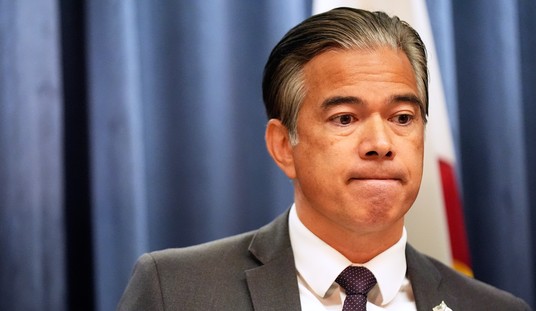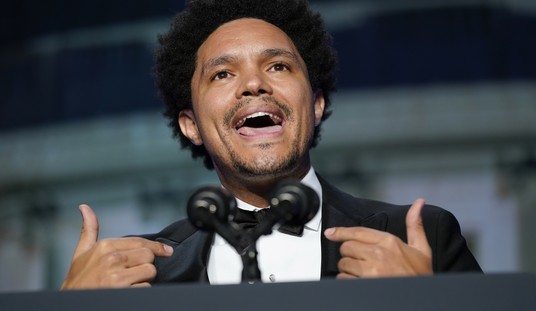No, this isn’t a “second look at Democrats” for the Chamber of Commerce, as National Journal’s Chris Frates reports, but it’s not exactly a love letter, either. The CC loved the pro-markets, small-government demands of the Tea Party, but the flirtation with the debt ceiling has the business community growing more nervous by the day. That has them hoping that Democrats can help bring the issue to a close before the crisis damages the markets and the economy:
U.S. Chamber of Commerce lobbyist Bruce Josten wrote an alarming blog post recently arguing that Congress’s failure to raise the debt ceiling would have “calamitous,” “devastating,” and “potentially catastrophic” effects. It was the latest in a series of apocalyptic warnings that the National Association of Manufacturers, the Financial Services Forum, and other business players have been sounding for months about the risks of the United States defaulting on its debt.
So as negotiations on raising the debt ceiling went down to the wire this week, how much pressure did these K Street powerhouses exert on the Republican House majority that they helped create?
“I haven’t heard from them,” said Rep. Tim Huelskamp, R-Kan., referring to the chamber. Huelskamp, who was weighing a vote against House Speaker John Boehner’s debt-ceiling bill, had lots of company in not feeling lobbying pressure from the corporate sector.
Washington’s top business lobbyists aren’t knocking the heads or twisting the arms of debt-limit deniers. Instead, they’re counting on the Democrats whom they fought to put in the minority to help save the country from default. The lack of behind-the-scenes pressure from K Street is in stark contrast to the dire public warnings. Despite the high stakes, little, if any, smashmouth lobbying is going on.
Why don’t they talk to the Democrats? For one thing, the CC has gone all-out against Democrats since ObamaCare, especially in the midterm elections. It’s doubtful that Democrats would give them the time of day. Besides, the CC still sees the Democratic Party as the main threat to the economy, not Tea Party-backed politicians who want to keep playing chicken on the debt ceiling:
The business community wants to stay on the good side of House Republicans. At most, business leaders are a little peeved at GOP members who are willing to risk default. But, they say, dealing with the occasionally difficult Republican is better than another two years of apoplexy under a Washington run by Democrats. “Business invested in an emergency brake on the Obama administration, and they got it,” said Collins, who ran the American Action Network, which spent $26 million largely helping to elect House Republicans. “They don’t want to see that go away.”
So the Chamber of Commerce and the business community at large has to remain on good terms with the Tea Party after all, and hope that the crisis ends well. The very Democrats that might have acted as a brake on Obama got booted out of office in the midterms, mainly because they didn’t act as a brake. In a two-party system, there aren’t a lot of options.
But the remorse — if it exists or develops at all — might come more from a fundamental misunderstanding of the Tea Party dynamic. The business community leadership is comprised mainly of big corporations that have significant investment in government interventions such as those built into the tax code. Business organizations hoping to use the Tea Party to ride back to Republican majorities would want a return to status quo ante and the genial, more subtle corporatism that the previous Republican majority perpetuated if not expanded. The fundamental changes demanded by the new crop of Republicans may very well have come as an unpleasant surprise to these business leaders, who expected the libertarian-tinged populism of the Tea Party politicians to fade.








Join the conversation as a VIP Member